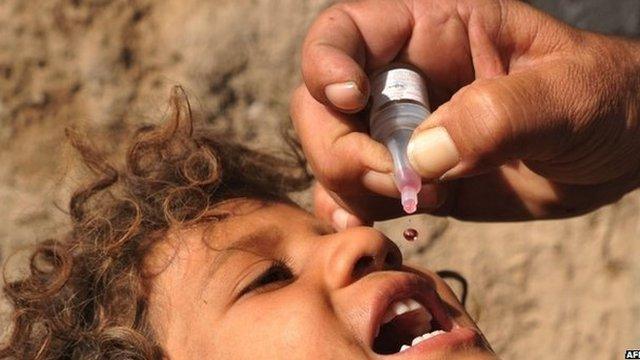Papua New Guinea polio outbreak declared
- Published
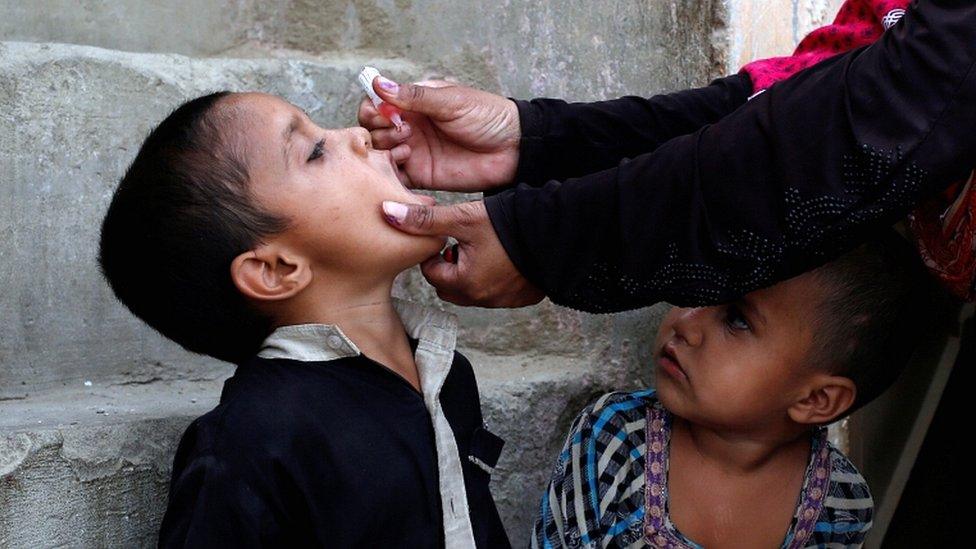
Polio remains endemic in Pakistan, Nigeria and Afghanistan, say global health officials
An outbreak of polio has been confirmed in Papua New Guinea, 18 years after the country was declared free of the disease.
The World Health Organization (WHO) says the virus was detected in a six-year-old boy in April.
The same strain of the virus has now been detected in other healthy children in the same community, making it officially an outbreak.
Polio has no cure and can lead to irreversible paralysis.
It mainly affects children under the age of five, and can only be prevented by giving a child multiple vaccine doses.
"We are deeply concerned about this polio case in Papua New Guinea, and the fact that the virus is circulating," said Pascoe Kase, Papua New Guinea's heath secretary.
"Our immediate priority is to respond and prevent more children from being infected."
The US Centers for Disease Control and Prevention said at the end of last week that the same virus that was found in the six-year-old boy was also found in samples taken from two healthy children in the same community, the WHO said.
This means the virus is circulating in the community, representing an outbreak, it added.
Immediate steps to stop the spread of the highly contagious disease include large-scale immunisation campaigns and strengthening surveillance systems that help detect it early.
Papua New Guinea has not had a case of wild poliovirus since 1996, and the country was certified as polio-free in 2000 along with the rest of the WHO Western Pacific Region.

What is polio?
Polio, or poliomyelitis, mainly affects children aged under five
It is a highly infectious disease caused by a virus. It invades the nervous system and can cause total paralysis in a matter of hours
Initial symptoms include fever, fatigue, headache, vomiting, stiffness of the neck and pains in the limbs
One in 200 infections leads to irreversible paralysis. Among those paralysed, 5% to 10% die when their breathing muscles become immobilised
Only three countries in the world have never stopped transmission of polio: Pakistan, Afghanistan and Nigeria

Only 61% of children in the area affected - Morobe province on the northern coast of the country - currently receive the recommended three doses of polio vaccine, the WHO says.
Inadequate sanitation and hygiene were also issues, it added.
Because of the region's isolation and the planned immunisation, the risk of the virus spreading to other countries is low, the WHO said.
There were some 20 cases of polio globally in 2017, with these cases occurring in just two countries: Afghanistan and Pakistan.

Will the world ever become polio-free?
Smitha Mundasad, global health correspondent
As recently as four decades ago, polio left 1,000 children paralysed every single day. The world has come a long way since then. Now, there are just a few countries where it is endemic and there have been just 15 cases so far this year. Zero seems tantalisingly close.
The good news is that polio is one of the few diseases that we actually have the ability to get down to zero. That is partly because it only infects humans - this means animals can't act as hidden reservoirs. And there are relatively inexpensive and effective vaccines that can offer protection for many years. Add in good sanitation and we are well equipped to battle the disease.
But global health experts say until it is completely eradicated, there remains a risk of polio spreading globally.
And areas like Morobe province in Papua New Guinea are particularly vulnerable as low vaccination rates and weak public health systems provide the ideal breeding grounds for cases to re-emerge.
- Published18 January 2018
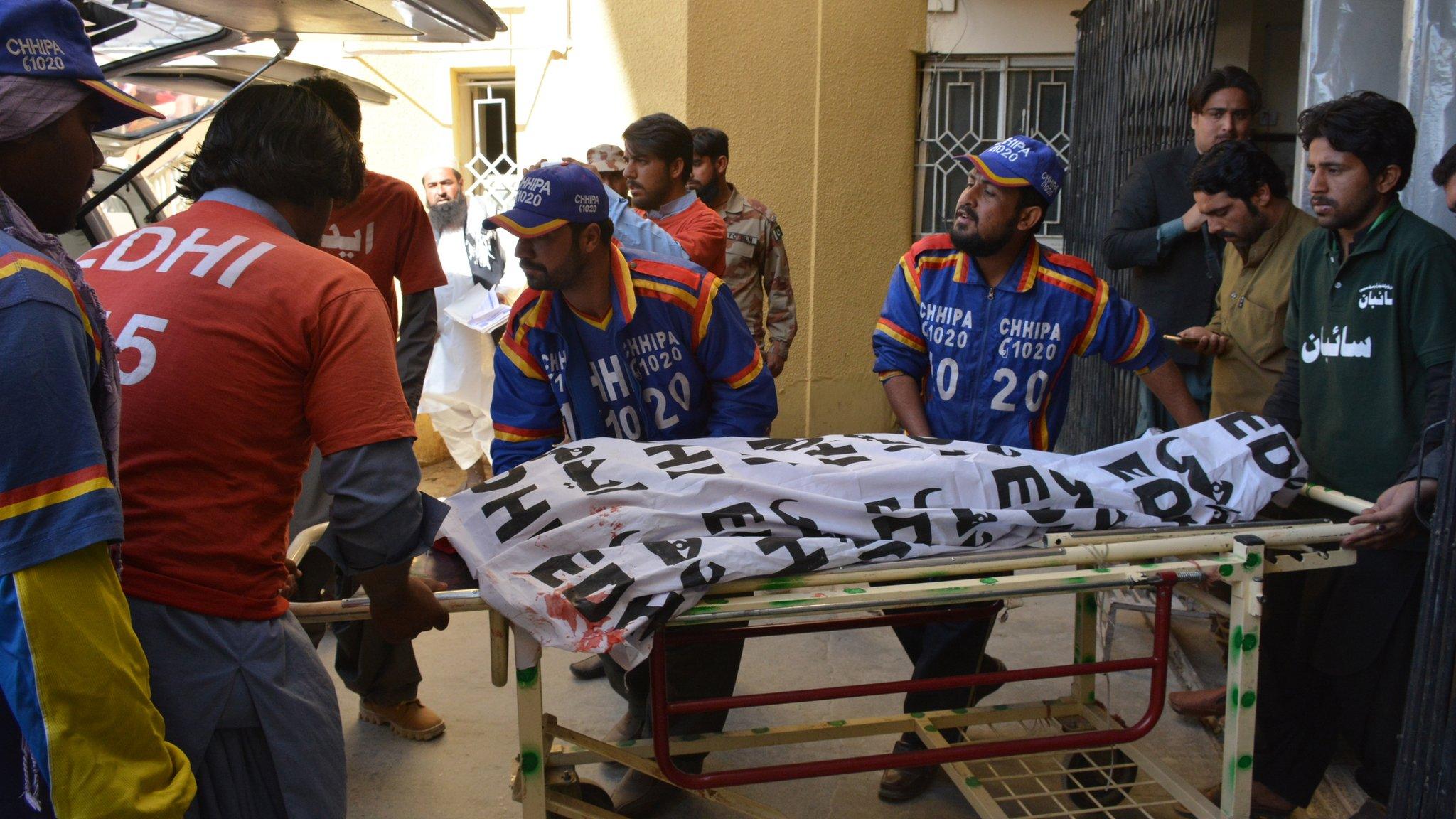
- Published12 August 2016
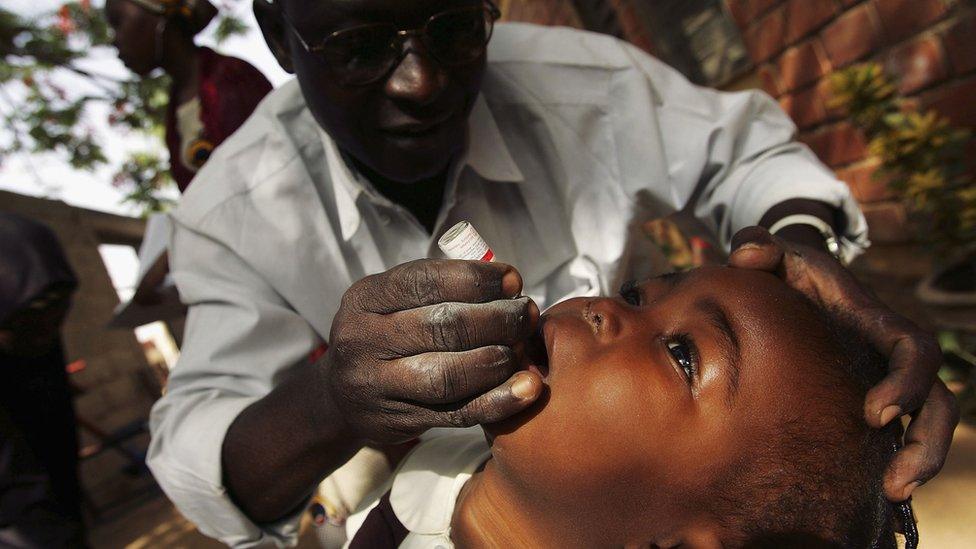
- Published25 September 2015
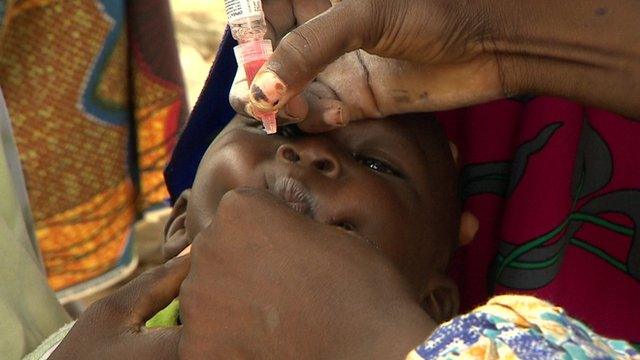
- Published11 August 2016
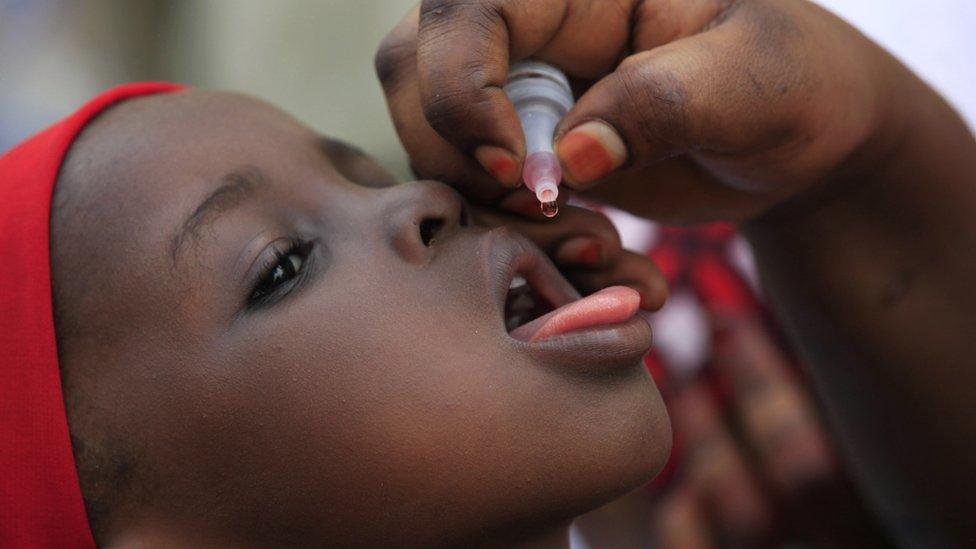
- Published16 May 2016
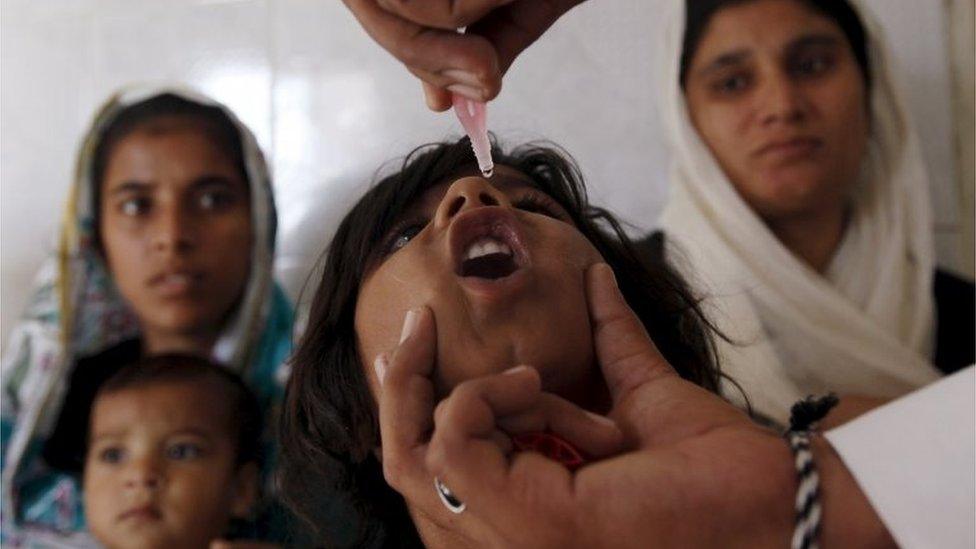
- Published25 September 2015
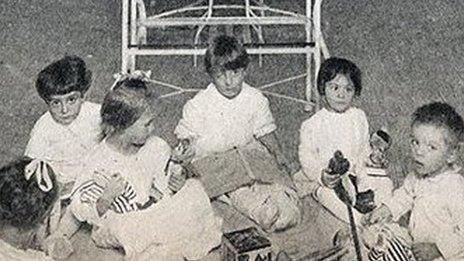
- Published11 February 2014
